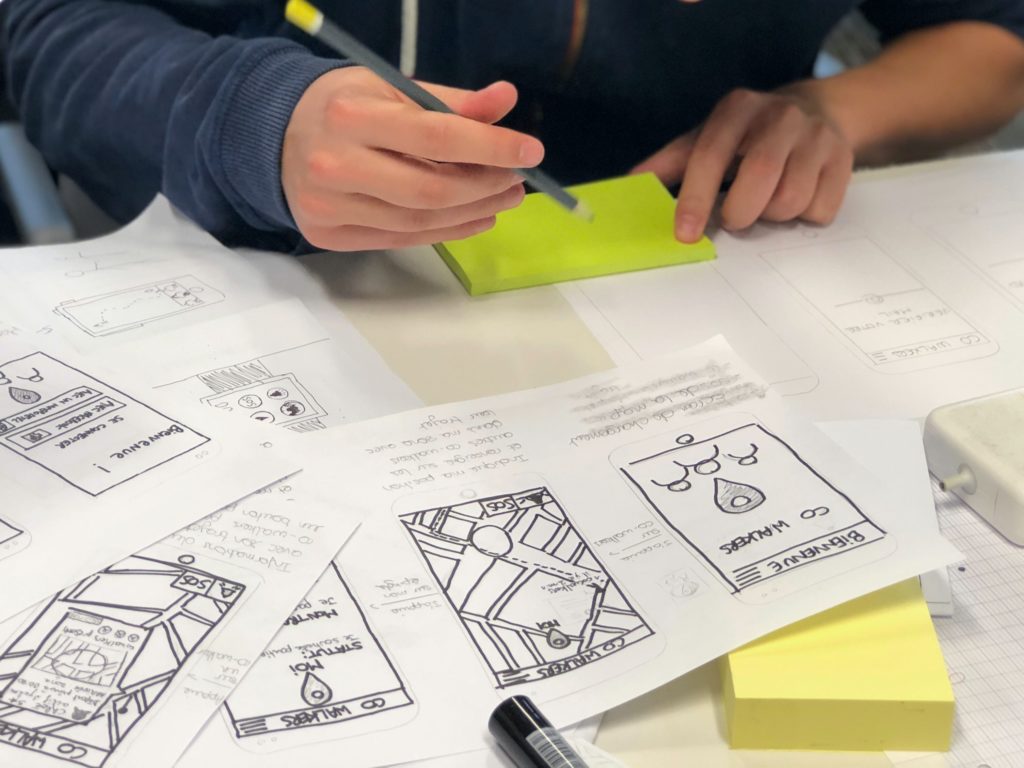
Students on the University of Exeter’s MSc Entrepreneurship and Innovation Management course have benefited from IBM’s tech support on a business incubator module, which prepares them for the challenges of real-world entrepreneurship.
45 students have been working on the programme’s ‘Entrepreneurship Venture Launch’ module, with input and assistance from IBM giving the module a real-world feel.
For the six-week module, students were split into nine teams and worked on site at the University’s Streatham Campus, with two teams of international students taking part from China. From there, students went on to develop design thinking for their ideas and assess their sustainability and positive impact, before undertaking the tech, prototyping and investment challenges needed to transform their initial ideas into working ventures.
A key part of this challenge was the Tech Hack during week three, where students got the chance to find out how their ideas could be engineered into working prototypes for real-world application.
Thanks to support from IBM, the teams were able to access the IBM Cloud and Watson – the company’s portfolio of business-ready tools, applications and cloud-based solutions – when participating in the tech hack. This allowed students to quickly find the best tech solutions for their ideas, with IBM volunteers on hand to offer guidance and advice.
As part of the hack, teams of students went to the Maker Space, a dedicated place and making function within the University of Exeter’s Engineering Department. Here, one team 3D-printed masks that could help people with respiratory illness and another built a working model of their noise-cancelling sleep pod, showing the rapid developments made possible by having this support on-hand.

Following the Tech Hack, the student teams demonstrated and tested their real-world prototypes for ‘Demo Day’, before using the ‘Design Sprint Week’ to identify and develop a specific aspect of the venture further. This stage, which uses the Sprint method first developed at Google, involved testing a product prototype with real users and collecting feedback to test the assumptions they had identified.
This Design Sprint was the final process before groups wrote up their business case, examining and demonstrating the value their venture – developed in just six weeks – can deliver socially, environmentally, and economically.
***
“The Entrepreneurship Venture Launch module is conceived as a start-up incubator where students get the chance to put their entrepreneurial knowledge to the test. The module uses a set of tools with the intention that the students will have these in their back pocket for future endeavours. These include design thinking, circular economy, tech hacking, prototyping, and sprint.
“Having access to technology like IBM Cloud and Watson enables our students to experience real world applications. This access would not mean much without the amazing support from IBMers who volunteer to support the hack.”

***
The University of Exeter and IBM have been working as strategic partners since 2013, developing new services and innovations, providing industry insight for education programmes to ensure graduates are equipped with the latest skills, and delivering guest lectures, placements, mentorship opportunities and consultancy projects. Explore this website to find out more.
We would like to take this opportunity to thank the team from IBM along with Trevor Sharp, Ian Woolridge and Colin Dart without whose help such events would not be possible.
Adam Lusby, the course tutor, joined the University as a full-time member of staff in June 2018. He currently advises on circular economy, curates and develops content on the Exeter MBA, and is working to deliver projects in the areas of entrepreneurship, innovation, and creativity in line with the Business School’s growth strategy.